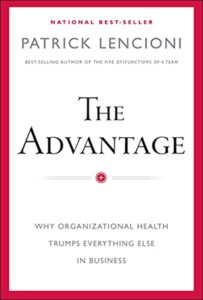|
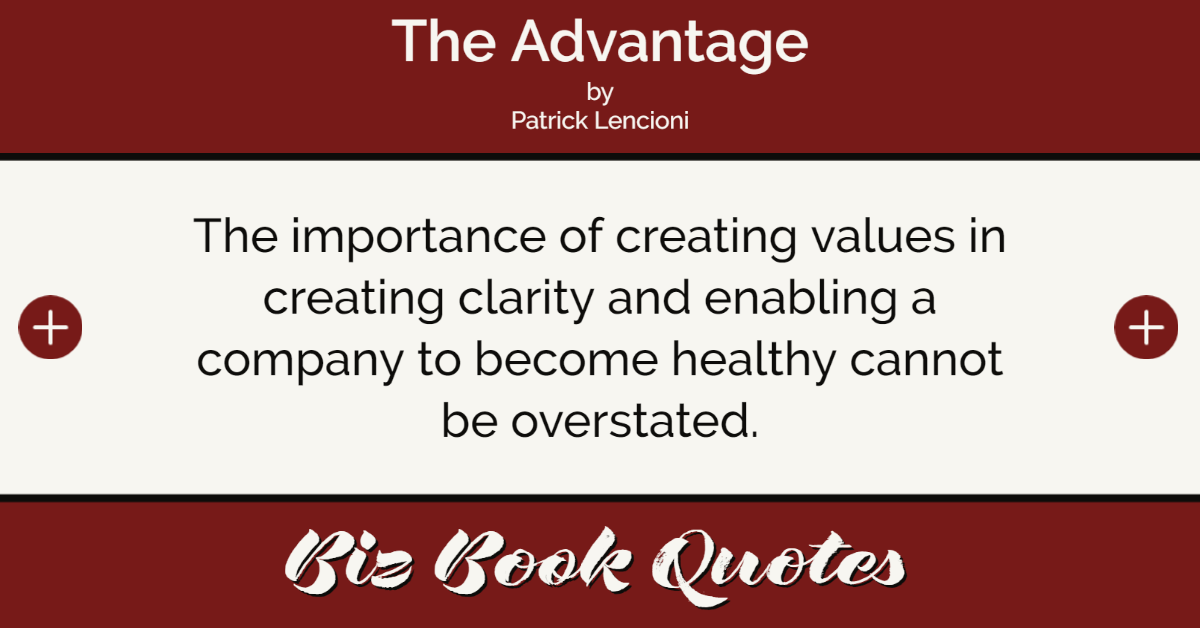
|
The Advantage:
The importance of creating values in creating clarity and enabling a company to become healthy cannot be overstated.
|
91 |
|
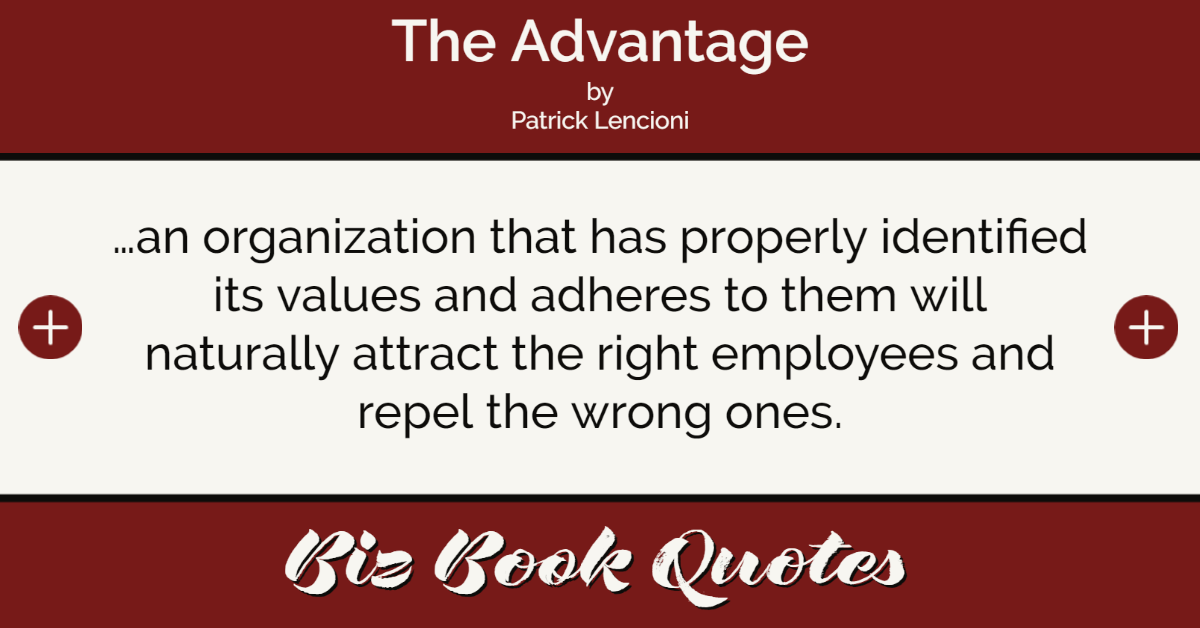
|
The Advantage:
…an organization that has properly identified its values and adheres to them will naturally attract the right employees and repel the wrong ones.
|
91 |
|

|
The Advantage:
Companies that are serious about their values find that the right customers eventually start to seek them out naturally.
|
92 |
|
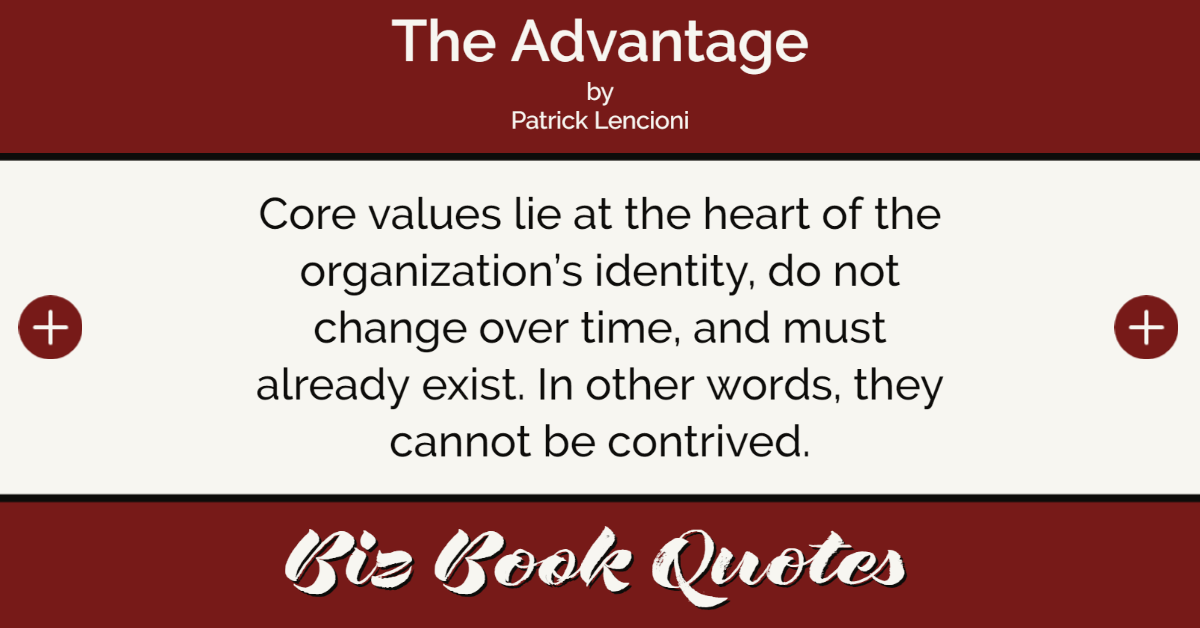
|
The Advantage:
Core values lie at the heart of the organization’s identity, do not change over time, and must already exist. In other words, they cannot be contrived.
|
94 |
|
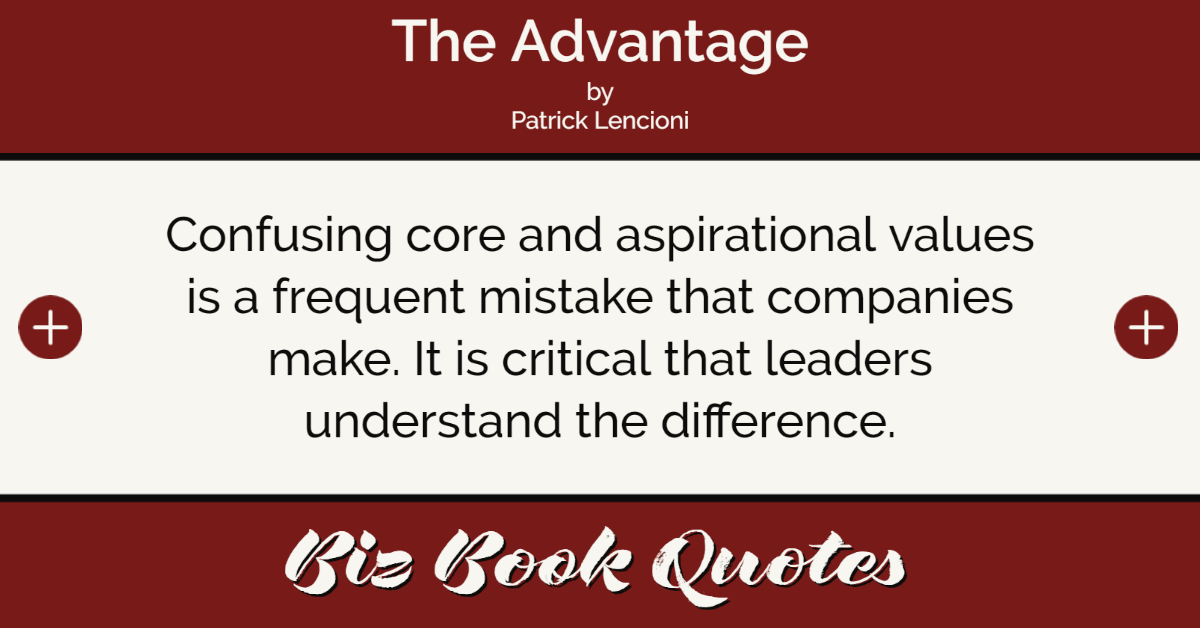
|
The Advantage:
Confusing core and aspirational values is a frequent mistake that companies make. It is critical that leaders understand the difference.
|
96 |
|
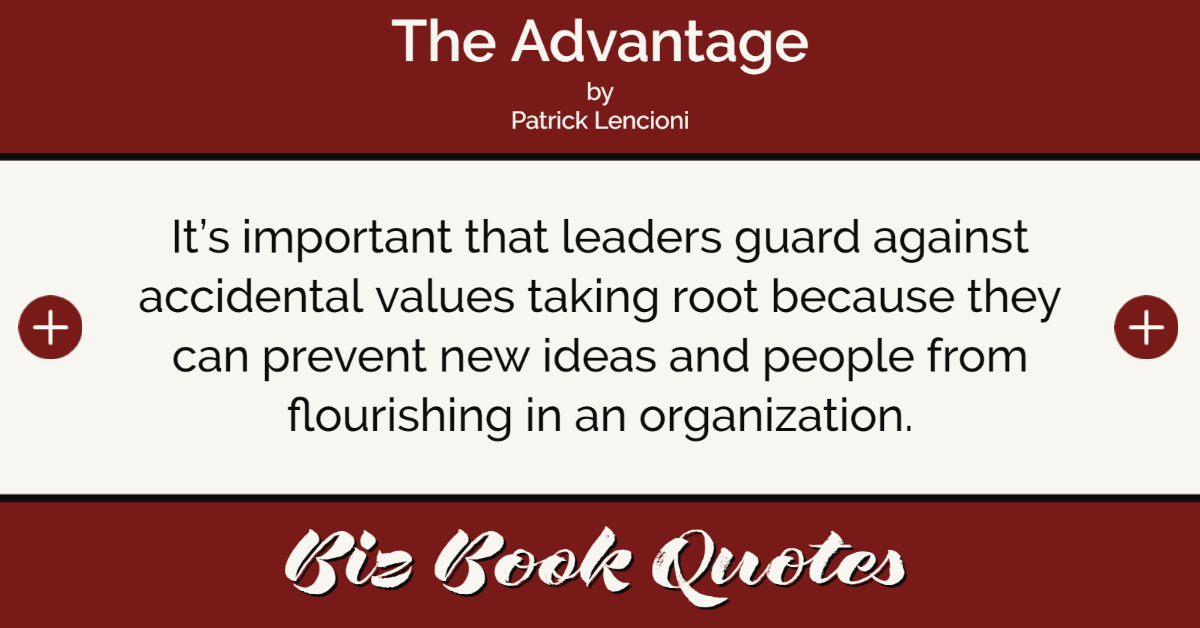
|
The Advantage:
It’s important that leaders guard against accidental values taking root because they can prevent new ideas and people from flourishing in an organization.
|
98 |
|

|
The Advantage:
A core value will have been apparent for a long time and requires little intentional provocation.
|
99 |
|
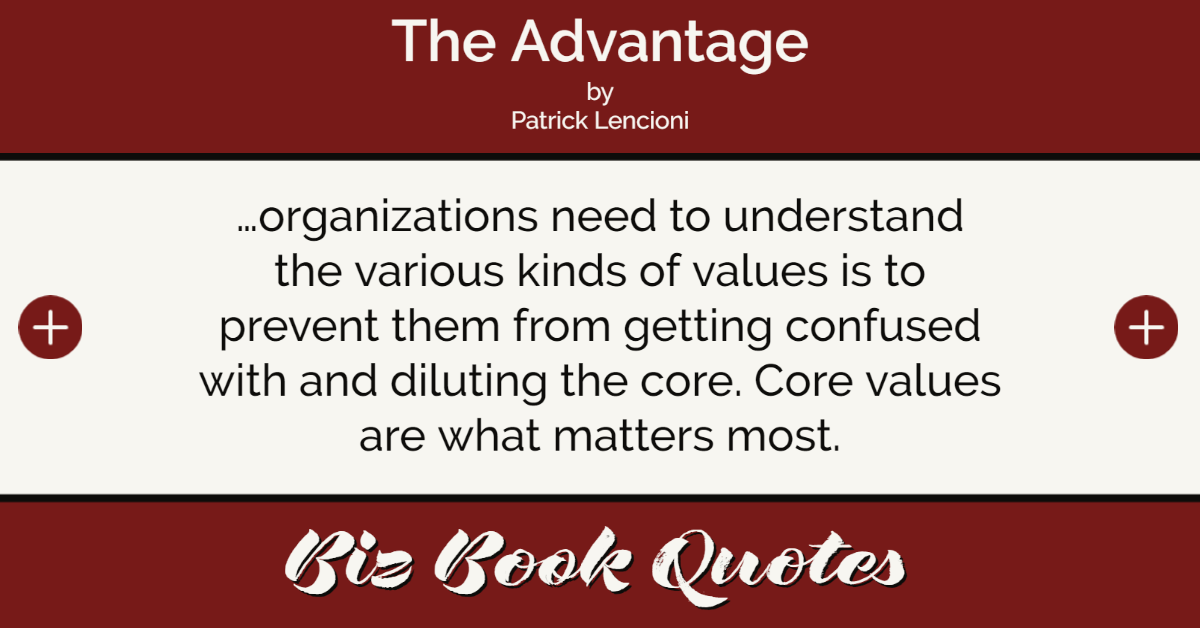
|
The Advantage:
…organizations need to understand the various kinds of values is to prevent them from getting confused with and diluting the core. Core values are what matters most.
|
100 |
|
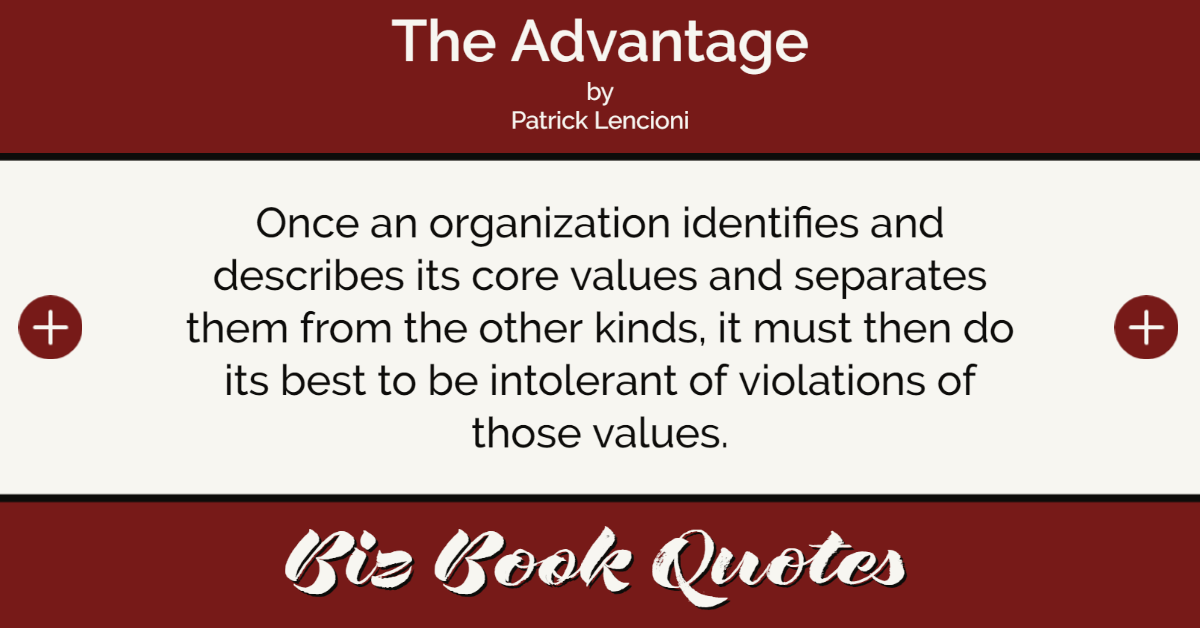
|
The Advantage:
Once an organization identifies and describes its core values and separates them from the other kinds, it must then do its best to be intolerant of violations of those values.
|
101 |
|
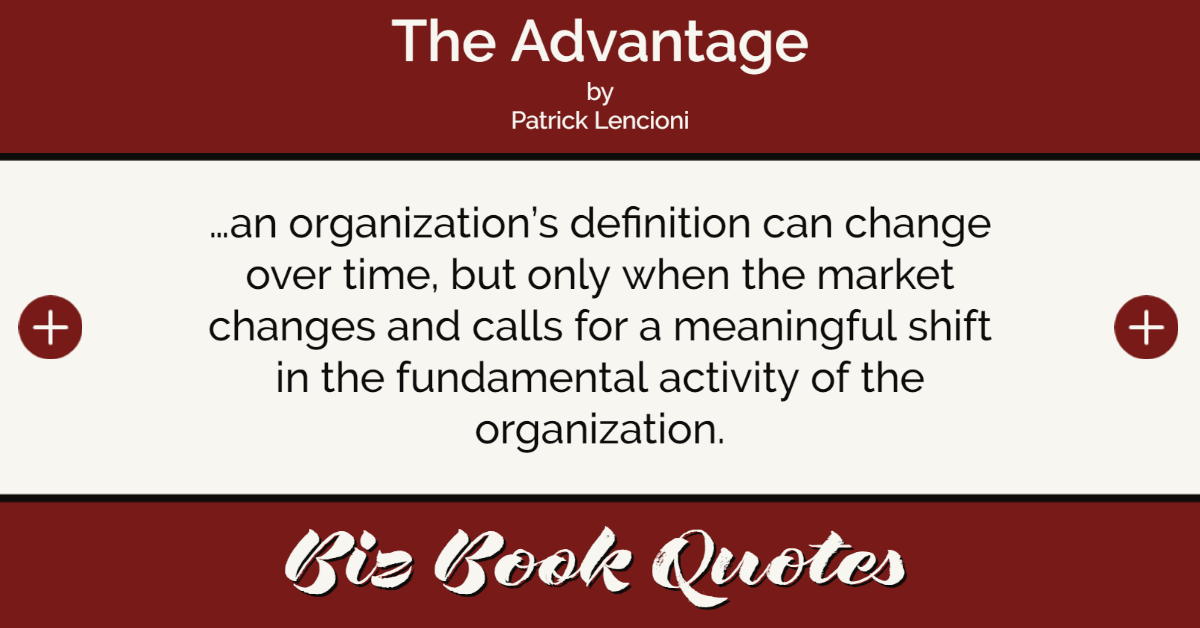
|
The Advantage:
…an organization’s definition can change over time, but only when the market changes and calls for a meaningful shift in the fundamental activity of the organization.
|
106 |
